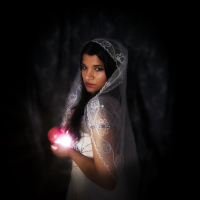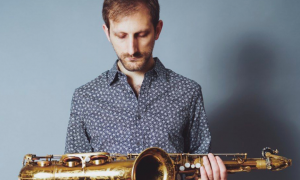Home » Jazz Articles » Interview » Paul Motian: There's a Million Songs Out There
Paul Motian: There's a Million Songs Out There
PM: Yeah, and I did a record with a pianist named Frank Kimbrough [Play, Palmetto Records, 2006]—and I am going to play with him for two nights at the Jazz Standard in July. Since I did the record, I said "okay to doing the gigs. Another plus about it is I've never been to the Jazz Standard, so I get to check it out. And I'm going to play with Bobo Stenson at Birdland. I'm playing there because I did that record with Bobo for ECM. The following week, I'm going to play a couple of nights with a pianist, Enrico Pieranunzi—they're having a week at Birdland of jazz musicians from Italy, so I'm going to play with Enrico Pieranunzi and [bassist] Marc Johnson, since I've toured and recorded with them. So these people from Italy sent me an email telling me that Enrico Pieranunzi is being sponsored by a shoe company in Italy and they wanted to know what size show I wear [laughing]. They want to give me a pair of shoes! So, you know, there are pluses to this kind of work.
AAJ: Do you have any favorite bands you've played in over the years—either as a leader or sideman?
PM: Thelonious Monk. Bill Evans. Keith Jarrett. Oscar Pettiford. Herbie Nichols. And Erroll Garner had a brother named Lynton Garner, who I played with. Coleman Hawkins. Roy Eldridge. Those are pretty good high points for me. There are more, but I can't think of them right now. Those were special.
AAJ: How do you think jazz is doing now?
PM: Fine with me [laughing]. I don't know. It's very different from when I first came to New York and started playing. But it seems to be doing okay; there seem to be a lot of musicians and places to play—different places to play than there were in the 1950s when I was playing around, but it seems like there are enough places to play in and plenty of young, good players. It seems like there was a period that's gone by where there weren't very many good young jazz players coming up, but that seems to have changed. I mean, I haven't heard that many, but I see that there are a lot out there playing and I assume there are some good players around.
AAJ: Okay, I am going to ask you a Bill Evans question.
PM: Sure, man, go ahead. I loved him. He was like my brother. We were very close, really good friends.
AAJ: A lot of people first encountered you in the classic Bill Evans trio with Scott LaFaro—which was forty-five years ago or so. This stuff still really touches people—it's actually the music I put on when I can't decide what record to play. What was it about this band that made such an impact and continues to affect people's lives today?
PM: I think it was the people. It's just that three people seemed to fit together really well. Also, I think it was the first time that people were playing in a piano/bass/drums trio that wasn't just the pianist being backed by bass and drums. That was the norm. The music happened for us because of who were—the people and the music and the talent of the people playing and coming together. It was like three pieces of a puzzle that just fit together very nicely. And the music was great, man; people were playing great. I can listen to that stuff now and it sounds like it could have been recorded today. I remember us talking about that—we wanted to make a music that didn't have a date on it. And I guess that happened.
A lot of people talk about the Vanguard recordings [Sunday at the Village Vanguard (Riverside, 1961) and Waltz for Debby (Riverside, 1961)], but I think my favorite one is the first record we did with Scott LaFaro, which was called Portrait in Jazz [which the group recorded for Riverside in December of 1959]. That was the first one that trio did. We were playing at a club in the Village, I think it was called the Showplace—it was down on West 3rd Street or 4th Street. I think we played in there for two weeks and right after that we went into the studio and did the record. And that's why it sounds so good; we'd been playing together and we just went into the studio right after that and played. It came out great. I love that record.
AAJ: So you're getting some music together to record again with the trio with Frisell and Lovano and also with the Motian Band.
PM: Yeah, the trio record's coming up in a couple of months and the other band probably by the end of the year, because we're going to play again at the Vanguard in June. I'm thinking about adding another bassist.
AAJ: What, an electric one?
PM: No, an acoustic player.
AAJ: Wow, I want to hear that.
PM: Yeah, me too!
Selected Discography
Paul Motian Band, Garden of Eden (ECM Records, 2006)Frank Kimbrough, Play (Palmetto, 2006)
Enrico Rava, Tati (ECM Records, 2005)
Bobo Stenson Trio, Goodbye (ECM Records, 2005)
Paul Motian Trio, I Have the Room Above Her (ECM Records, 2005)
Tony Malaby, Adobe (Sunnyside, 2004)
Marilyn Crispell Trio, Storyteller (ECM Records, 2004)
Paul Motian, Rarum: Selected Recordings XVI (ECM Records, 2004)
Enrico Pieranunzi, FelliniJazz (CamJazz, 2003)
Paul Motian and the Electric Bebop Band, Holiday for Strings (Winter & Winter, 2002)
Marilyn Crispell/Gary Peacock/Paul Motian, Amaryllis (ECM Records, 2001)
Paul Motian and the Electric Bebop Band, Europe (Winter & Winter, 2001)
Russell Lossing, Dreamer (Double-Time Records, 2000)
Paul Bley/Gary Peacock/Paul Motian, Not Two, Not One (ECM Records, 1999)
Paul Motian, Trio 2000 + One (Winter & Winter, 1999)
Marilyn Crispell/Gary Peacock/Paul Motian, Nothing Ever Was, Anyway: Music of Annette Peacock (ECM Records, 1997)
Keith Jarrett/Gary Peacock/Paul Motian, At the Deer Head Inn (ECM Records, 1994)
Paul Motian, On Broadway, Vol. 3 (JMT, 1992)
Paul Motian, In Tokio (JMT, 1992)
Paul Motian, On Broadway, Vol. 1 (JMT, 1989)
Paul Motian, Monk in Motian (JMT, 1988)
Paul Bley Quartet, Paul Bley Quartet (ECM Records, 1988)
Paul Bley, Fragments (ECM Records, 1986)
Bill Frisell, Rambler (ECM Records, 1985)
Paul Motian Trio, It Should Have Happened a Long Time Ago (ECM Records, 1985)
Charlie Haden, The Ballad of the Fallen (ECM Records, 1983)
Paul Motian Band, Psalm (ECM Records, 1982)
Paul Motian Trio, Le Voyage (ECM Records, 1979)
Paul Motian Trio, Dance (ECM Records, 1978)
Keith Jarrett, Eyes of the Heart (ECM Records, 1979)
Keith Jarrett, The Survivors' Suite (ECM Records, 1977)
Paul Motian, Tribute (ECM Records, 1975)
Keith Jarrett, Death and the Flower (ABC Impulse, 1975)
Paul Motian, Conception Vessel (ECM Records, 1973)
Keith Jarrett, Expectations (Columbia, 1972)
Carla Bley, Escalator Over the Hill (JCOA Records, 1971)
Charlie Haden, Liberation Music Orchestra (Impulse, 1969)
Keith Jarrett, Life Between the Exit Signs (Vortex, 1968)
Mose Allison, Wild Man on the Loose (Atlantic, 1966)
Bill Evans, Trio 64 (Verve, 1964)
Martial Solal, Martial Solal at Newport '63 (RCA Victor, 1963)
Bill Evans Trio, Moonbeams (Riverside, 1962)
Bill Evans Trio, Waltz for Debby (Riverside, 1961)
Bill Evans Trio, Sunday at the Village Vanguard (Riverside, 1961)
Bill Evans Trio, Explorations (Riverside, 1961)
Bill Evans Trio, Portrait in Jazz (Riverside, 1960)
Bill Evans, New Jazz Conceptions (Riverside, 1959)
Eddie Costa Quintet, Eddie Costa Quintet (Mode Records, 1957)
George Russell, Ezz-thetic (RCA, 1957)
Tags
Paul Motian
Interview
Paul Olson
United States
Scott LaFaro
Bill Evans
Keith Jarrett
Paul Bley
carla bley
Charlie Haden
Bill Frisell
joe lovano
PREVIOUS / NEXT
Support All About Jazz
 All About Jazz has been a pillar of jazz since 1995, championing it as an art form and, more importantly, supporting the musicians who make it. Our enduring commitment has made "AAJ" one of the most culturally important websites of its kind, read by hundreds of thousands of fans, musicians and industry figures every month.
All About Jazz has been a pillar of jazz since 1995, championing it as an art form and, more importantly, supporting the musicians who make it. Our enduring commitment has made "AAJ" one of the most culturally important websites of its kind, read by hundreds of thousands of fans, musicians and industry figures every month.





















